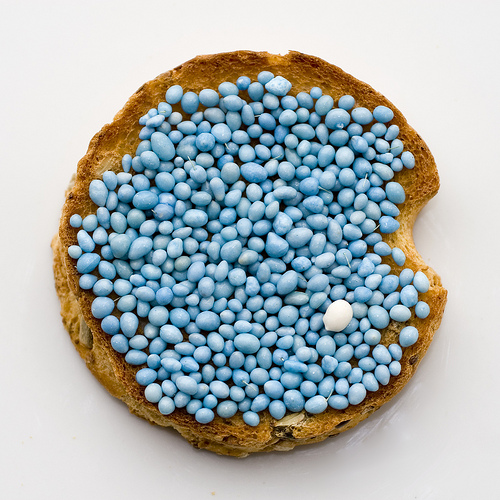A substantial chunk of your living costs in the Netherlands will consist of Dutch Local Taxes. Some residents of Holland begrudge having to pay their municipality so much money. Others just accept it. However you feel about them, local taxes are part of the reason the Netherlands is so well run as a country. Furthermore, this is why it attracts so many expats! On this page, we will explain who is in charge of local levies and what what they go towards.
Holland likes taxes
The Netherlands is a country that really believes in the societal value of local taxes! If a municipality sees an opportunity to improve an aspect of their community, they will happily put a levy on it. Here are a few general facts about local taxes in the Netherlands:
Tax Facts
- Local taxes are expected to continue to rise during the coming years in the Netherlands
- Levies are applied locally, by individual municipalities. Therefore, the amount of tax Dutch residents are charged varies greatly from one municipality to another
- There are several Dutch organisations who work to ensure that local taxes are levied in accordance with their citizens’ best interests
- One is called the ‘Consumer’s Association‘. In Dutch, it is named the ‘Consumentenbond‘
- This is a non-profit organisation that works to ensure that the Dutch markets remain safe and that consumers are treated fairly
Association of Property Owners
- Another is the ‘Association for Property Owners’. This is called the ‘Vereniging Eigen Huis‘ in Dutch
- They investigate the local taxes every year, to help ensure that homeowners are not being taken advantage of
- A few years ago, thanks to the Association for Property Owners, one of the major municipal authorities made a serious plea for more transparency in the calculation of local taxes
The Cost of Living?
- Some Dutch taxpayers see local taxes simply as ‘costs of living‘. To them, taxes are no different from the fees they pay for gas, electricity, water and insurances
- Investigations have shown that the costs of gas, electricity and water amount to 32% of the total costs for living in the Netherlands, while local taxes account for 25%
What are Local Taxes for in NL?
In the Netherlands, local taxes are collected and used for things like:
- Maintaining the streets, canals and city gardens
- Extra contributions to education
- Improving and running sports and recreational activities
- Art and culture
We will go through some of the main Dutch local taxes below, and explain what they are used for:
MUNICIPAL PROPERTY TAX IN NL
What is Municipal property tax?
- Municipal property tax is referred to as ‘Onroerend Zaak Belasting‘ or ‘OZB’in Dutch
- If you own a house in the Netherlands, you will owe municipal property tax
- You will not owe any municipal property tax if you simply rent or use a house
Calculating Municipal Property Tax in NL
- The value of the property, or the ‘WOZ-value‘, dictates how much municipal property tax you owe. You can read about what the WOZ-value is in our side note box below
- To determine the value of your property, the municipality employs its own valuation surveyors
- Each year, your house will be revalued by them
Tax Rates in NL
- That years inflation rate will be applied to your property. This rate differs from municipality to municipality
- When real estate prices go up, the municipalities generally lower their property tax rates, to compensate
- Likewise, when they go down, the property tax rates are raised accordingly
- This means that the municipal property tax assessment is largely independent of the developments in the housing market
 Side Note
Side Note
WOZ-Value
- The ‘WOZ-value‘ of a property is it’s annual valuation
- The valuation procedure is carried out by the municipality
- Levies and taxes that are imposed on property in NL are calculated according to its WOZ-value
WASTE COLLECTION TAXES IN NL
Waste collection tax is levied to cover the costs of collecting and processing household waste:
- The waste collection tax goes towards emptying the glass, paper, plastics, and clothing containers that can be found in Dutch towns and cities
- Processing this waste is an expensive business
- As environmental laws become stricter in the Netherlands, separating waste becomes increasingly expensive
SEWERAGE CHARGES IN NL
Sewerage charges are used to cover the costs of maintaining the municipal sewage system in the Netherlands
- If you own immovable property in Holland, you will have to pay sewerage charges
- If you have been settled in the Netherlands for a while now, you may have noticed that your sewerage charges are increasing each year
- This is due to the arrears in the maintenance of the Dutch city sewage system
WATER BOARD ASSESSMENTS IN NL
In the Netherlands some local tax money is also spent on keeping the water at certain level in:
- Rivers
- Canals
- Ditches
- Streams
Surface Water Quality
The quality of the surface water is assessed and maintained too:
- During the wet season, the water systems are drained
- During the dry season, if necessary and possible, more water is brought in
- For a country as wet as the Netherlands, this is a very important service
POLLUTION LEVY IN NL
Higher water control corporations are called ‘Waterschappen‘ in Dutch. They collect the pollution levy from all households in the Netherlands. This levy is used for maintaining or improving the quality of surface water. It also pays for sewage treatment plants to clean waste water.
DOG TAX IN NL
Originally, dog tax was used by companies who used dogs to pull carts. Nowadays, it is an environmental tax.
- It is used to cover the costs of setting aside places for the dogs to run and play in the Netherlands
- Dog tax is also used to clean up dog poo
- Anyone who owns a dog in Holland must pay dog tax, if they reside in a municipality that still levies it
Check out our other page, which contains more information about keeping pets in the Netherlands.
PAPER SERVICES IN NL
Residents of the Netherlands are also charged for the ‘paper services’ that the municipalities provide. Paper tax refers to:
- Marriage licenses
- Registration papers
- Driver’s licenses
- Passports
- Residence permits
- Parking permits (in larger cities)
A dent in your savings
The sum of all these levies can come to a substantial amount of money and case quite a dent in your vacation savings! So, as a resident of the Netherlands you should try to set aside as much as you can every year, to cover these taxes.
 Useful links
Useful links
For more information about Dutch Taxes, take a look at our articles on:
Further facts and advice are offered by:

Everything you need to know about c ...
As an expat in the Netherlands, there might be a couple of traditions that will ...

The UnDutchables 9.0
Following the legendary previous eight editions of The UnDutchables, the 9th edition of this all ...

Gift giving in the Netherlands-all ...
If you feel like skipping your birthday, you may be in for a challenge when ...

The American Netherlander - 25 Year ...
In 1994, author Greg Shapiro came to the Netherlands. The idea was to spend a ...

How to Meet Locals in Amsterdam
Being far from home in a foreign city or country can be one of the ...

Typical Dutch Festivities
In the Netherlands, the Christmas season is marked by a sequence of typical Dutch festivities ...

Special Occasions the Dutch way
The Dutch love to mark a special occasion. What's more, for each one, they ...

Dutch Customs and Etiquette
The Netherlands has its own unique set of customs. There is an etiquette for how ...